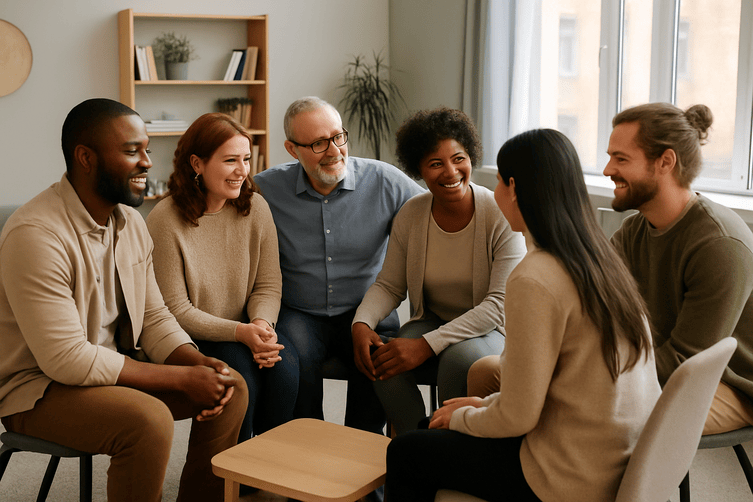Trauma is often seen as an individual struggle, but its effects rarely stay contained within one person’s life. The pain, stress, and disconnection caused by traumatic experiences may ripple through families, workplaces, and social circles, shaping the way communities function. Trauma counselling plays a key role in reversing this cycle—not only by supporting individual recovery but also by fostering stronger, more compassionate communities.
Understanding Trauma Beyond the Individual
What Trauma Looks Like in Everyday Life
Trauma manifests in many ways, and its reach often extends far beyond the immediate symptoms. Someone dealing with unresolved trauma may struggle with heightened anxiety, difficulty maintaining relationships, or recurring physical health concerns. These issues may influence how they parent, engage at work, or participate in their social circles. Trauma is deeply personal, but its impact is also relational—it shapes the way people interact with those closest to them.
Why Community Matters in Recovery
Healing is not a solitary process. While personal reflection and therapy are critical, recovery is also influenced by the environment a person belongs to. Supportive communities may provide encouragement, accountability, and a sense of belonging that accelerates recovery. Conversely, environments that carry stigma or misunderstanding around trauma may isolate individuals further, deepening the wounds.
For readers interested in the broader importance of community wellbeing, you may explore insights on community wellbeing shared on smart-article.com, which delve into how collective awareness nurtures healing.
The Role of Trauma Counselling in Collective Healing
Counselling as a Safe Space for Change
Trauma counselling provides individuals with the tools to process difficult experiences and reclaim stability in their daily lives. Through guided sessions, people may learn coping strategies, emotional regulation, and ways to reframe past events. These skills don’t just benefit the person in therapy—they often influence how they interact with family, friends, and colleagues.
Ripple Effects on Families and Communities
Healing is rarely confined to one person. When an individual learns to manage emotions, set boundaries, or rebuild trust, these shifts influence their relationships. A parent who has engaged in counselling may create a calmer home environment. A partner who has worked through past trauma may communicate more openly, strengthening a relationship. Over time, these ripples contribute to healthier, more connected communities.
As an example of how structured therapy supports these outcomes, Living Consciously offers Professional Trauma Counselling Services, helping individuals navigate trauma while encouraging positive change that extends into their wider social environments.
Reducing Stigma and Building Empathy
Why Talking About Trauma Matters
One of the most significant barriers to recovery is silence. People often hesitate to speak about trauma out of fear of being judged or misunderstood. Trauma counselling encourages open dialogue, equipping people with language to articulate their experiences in a safe setting. When individuals begin to share their stories, stigma diminishes and empathy grows.
Communities as Partners in Recovery
Communities play a powerful role in normalizing healing. Schools that offer trauma-informed programs, workplaces that encourage counselling access, and cultural groups that validate mental health struggles create safer environments for individuals to seek support. This collective openness fosters empathy, reminding us that trauma does not define someone—it is a part of their journey, not their entire identity.
For those wanting to read more about the importance of shifting attitudes, smart-article.com’s work on mental health awareness provides thoughtful perspectives on creating compassionate spaces for recovery.
Trauma Counselling and Long-Term Social Resilience
Creating Sustainable Support Networks
The skills developed in counselling—such as boundary-setting, emotional regulation, and effective communication—contribute to healthier networks of support. When these skills are practiced within families and communities, they lay the groundwork for resilience. People learn how to support one another without carrying each other’s burdens, creating balance that sustains long-term wellbeing.
Post-Traumatic Growth in Collective Contexts
Trauma is undeniably painful, but it may also be a catalyst for growth. Counselling helps individuals reframe their experiences, finding meaning and personal strength in the aftermath. When this growth occurs collectively—within families, communities, or workplaces—it creates stronger bonds and shared resilience. Healing becomes not just about surviving but about evolving together.
Complementary practices such as mindfulness and reflection also reinforce these outcomes. Readers may find additional insights in smart-article.com’s content on mindfulness practices, which highlight how awareness and presence strengthen both individual and community wellbeing.
Moving Forward Together
Integrating Counselling into Community Culture
For trauma counselling to have its fullest impact, it needs to be embedded into community culture. Schools introducing trauma-informed teaching, workplaces providing access to therapy services, and healthcare systems recognizing trauma as a key factor in overall health are vital steps forward. By making counselling accessible and normalized, communities may reduce stigma and promote healing as a collective priority.
Call to Reflection and Connection
Healing trauma may begin with an individual decision, but it does not end there. Every person’s recovery contributes to the wellbeing of the wider circle they belong to. By recognizing the hidden links between trauma counselling and community healing, we may begin to see recovery not only as a personal process but also as a communal responsibility.
Conclusion
Trauma affects individuals deeply, but its influence extends to the families, workplaces, and communities they interact with daily. Trauma counselling supports not only personal healing but also the creation of more compassionate, resilient communities. When people engage in therapy, they often develop healthier relationships, reduce stigma by sharing their experiences, and contribute to long-term collective wellbeing. In this way, every act of healing strengthens the fabric of society. The path forward lies in recognizing that personal growth and community healing are inseparable.



